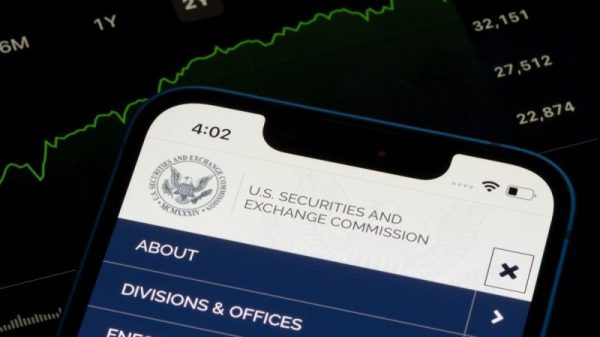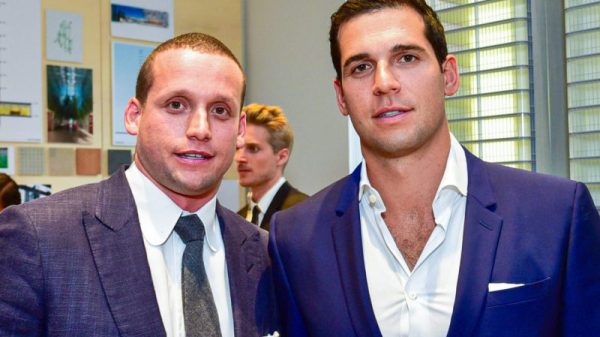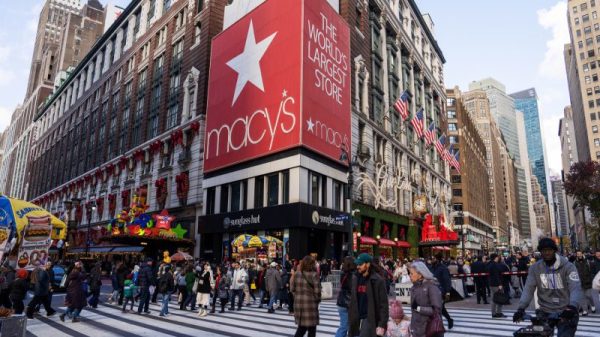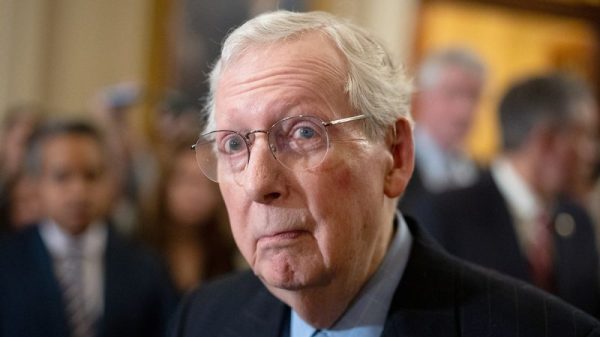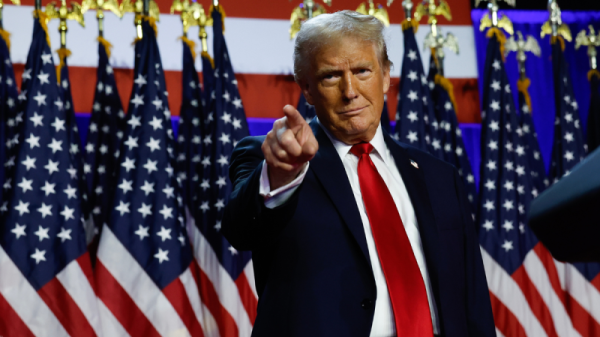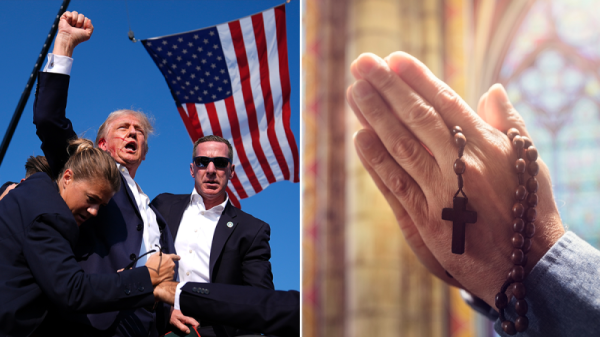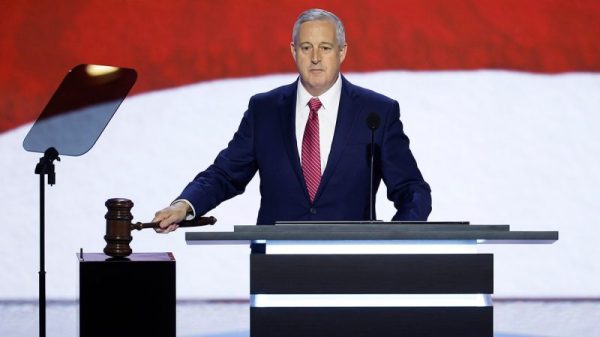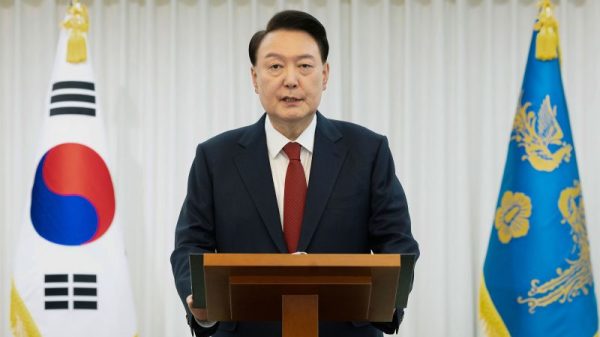All of this began in the early morning hours of Nov. 4, 2020.
After polls closed on Election Day, Donald Trump could have accepted that American voters had opted to replace him. He could have ignored the months of groundwork laid to claim that the election was stolen and admit that it wasn’t. But he did not. In the middle of the night, he told reporters and America that he’d won — and he spent the next two months in an unsuccessful effort to manifest that falsehood.
For a long time, he escaped significant accountability. He was impeached by the House in 2021 but Senate Republicans voted against convicting him following the trial. A civil suit brought in 2021 by police officers who were at the Capitol riot crept through the legal system and remains unresolved. The House select committee investigating his actions after the election cobbled together a detailed picture of how he’d tried to retain power — but then Republicans won the 2022 midterms and the committee quickly wrapped up.
Then, in August 2023, special counsel Jack Smith obtained a federal criminal indictment against Trump for his efforts to retain power. The stage was set for Trump to have to account for his actions; there were 15 months during which his response to the 2020 election could be adjudicated before the next presidential election in 2024.
But, again, the process moved slowly — and will now move more slowly still.
On Wednesday, the Supreme Court announced that it would consider Trump’s primary delay tactic: an argument that he had broad immunity for his actions because of his position. It’s an argument that’s been rejected multiple times in various venues previously and one that most independent observers view as invalid. The Supreme Court will probably (though by no means certainly) agree. But, thanks to how this has unfolded, Trump’s 2020 actions will probably not be adjudicated by the time voters go to the polls in November — which may render the whole thing irrelevant.
Again, this story begins on Election Day in 2020. Trump fought his loss with every tool at his disposal but failed to remain in office. In July 2021, following a June 30 vote, the Democratic-led House initiated the select committee to probe the riot at the Capitol six months before — and, more broadly, Trump’s post-election actions. The month after the committee was formed, six police officers filed a civil suit against Trump.
The committee did its work and held its hearings. By November 2022, though, the writing was on the wall: Republicans were likely to retake the House majority and dissolve the investigation. After the midterms, the committee issued a final report, about a month after Trump announced that he would seek the presidency again in 2024.
Meanwhile, the Justice Department had already started building a case against Trump. In late 2021, investigators were already subpoenaing people tied to Trump’s effort. When Trump announced that he was seeking the 2024 Republican nomination, Attorney General Merrick Garland transitioned the existing probe to special counsel Jack Smith, offering a layer of distance from the Biden administration.
In August, Smith obtained the indictment in D.C. In early October, Trump argued that the case should be dismissed because he had immunity for his actions as president. Smith, as you might expect, disagreed.
Trump had already tried this tack in the civil case, without success. But it was obvious from early on that Trump saw the 2024 election as a central element of his legal fight: if he could be elected president — or maybe even just run — he could derail the federal government’s efforts to hold him criminally liable. Injecting this idea that he had immunity was, if nothing else, a way to slow the legal process.
The judge overseeing the D.C. case, Tanya S. Chutkan, rejected Trump’s argument — coincidentally on the same day that the D.C. Circuit Court of Appeals rejected his immunity claim in the civil trial. It didn’t take long for Trump to appeal Chutkan’s decision to that same appeals court.
Smith asked the Supreme Court to intervene, as a means of resolving the immunity question over the short term. Chutkan issued a stay on the criminal case while the immunity argument was being considered, meaning that no trial could move forward in the interim. The Circuit Court agreed to move quickly. Three days before Christmas, the Supreme Court rejected the request to jump in.
Earlier this month, the Circuit Court ruled against Trump’s immunity claim. Trump appealed that decision to the Supreme Court on Feb. 12. Smith asked the court to decide quickly.
“The charged crimes strike at the heart of our democracy,” he wrote in a response to Trump’s claims. “A President’s alleged criminal scheme to overturn an election and thwart the peaceful transfer of power to his successor should be the last place to recognize a novel form of absolute immunity from federal criminal law.”
He did not need to mention that Trump was again hoping to gain power through a democratic election.
On Wednesday, the court agreed to consider the case. Trump needs to present a brief by March 19 and Smith to respond by April 8. Oral arguments are scheduled for the week of April 22.
So the question becomes: Then what?
After the Circuit Court rejected Trump’s immunity claim, Just Security published a detailed article explaining its expectations on time frames. If the court agreed to hear the case, Norm Eisen, Matthew Seligman and Joshua Kolb hypothesized, arguments were likely to be heard in late March with a decision in mid-April. But we know now that predicted timeline was optimistic: instead, the court won’t hear arguments until Just Security figured they’d have handed down a ruling. The court’s current session ends in late June, meaning that a decision on immunity would, at the very latest, land then or in early July.
Now we apply the other estimates from Just Security: that there are still three months of pretrial considerations to work through and then a probable three-month trial. That means that, assuming a late-June Supreme Court decision, pretrial activity would be gearing up as the Republican Party holds its nominating convention in July. The trial might begin in late September — finishing at the end of the year.
There is no prohibition — formal or otherwise — about trying a political candidate before an election. But Trump would be expected to make political hay of the circumstances, arguing that a trial would be a form of election interference. Perhaps the court would resist such arguments and perhaps the preparations for and the trial itself would move faster than three months each. But the odds are slim and getting slimmer that the question of Trump’s criminality in attempting to retain power will be settled before voters are asked whether to return that power to him.
If he loses in November, none of this matters. His trial will continue and his guilt determined. But if he wins? He becomes president and could attempt to pardon himself. Accountability evaporates.
If he regains the presidency and the Supreme Court previously ruled that he has absolute immunity in that role? A whole new challenge emerges entirely.





